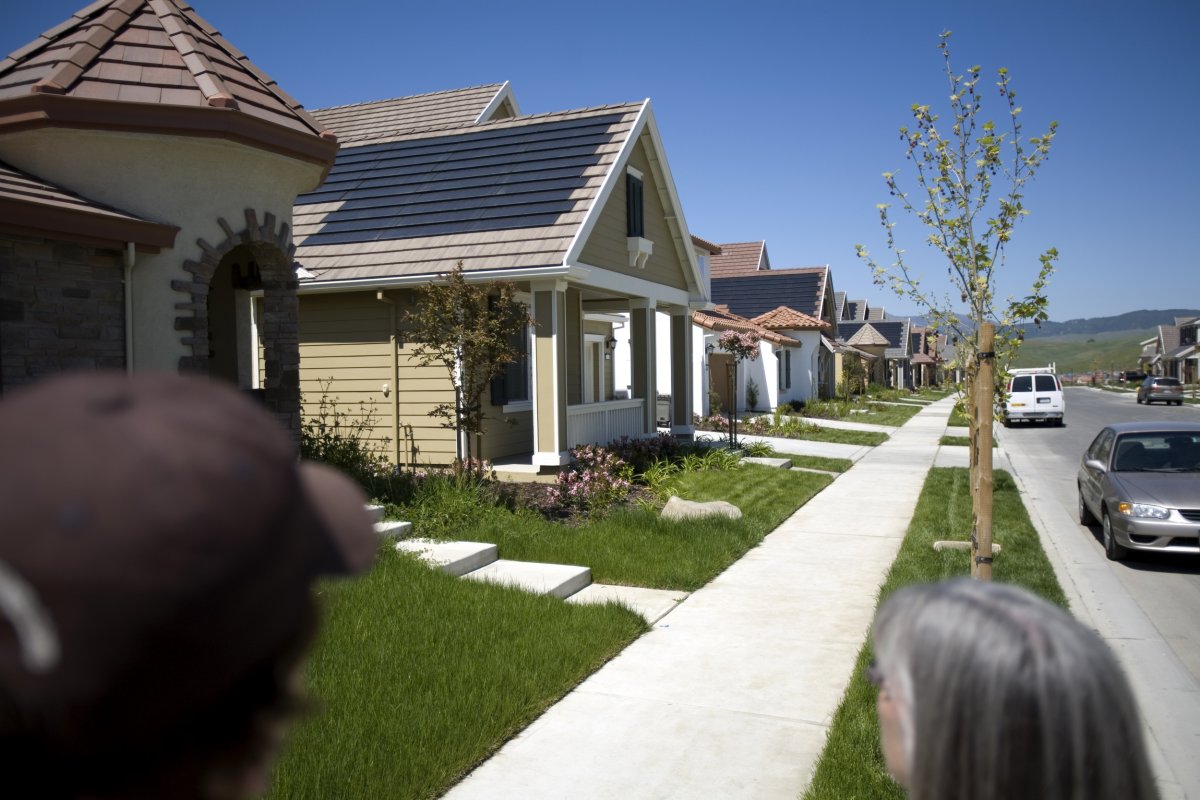Soaring interest rates are dimming the prospects of the solar energy sector, despite the Joe Biden administration's substantial $370 billion backing through the Inflation Reduction Act intended to catalyze clean energy initiatives.
The White House aims to reach 80 percent renewable energy generation by 2030 and transition to a carbon-free electricity grid by 2035. However, achieving the targets may be complicated by the current high interest rate environment, which presents challenges for solar firms reliant on affordable financing to initiate new projects.
The solar sector, which saw record-breaking growth last year, is contending with financial pressures that have sent stocks plummeting and put the industry's future at risk. Stocks like SunPower Corp. and Solaredge Technologies Inc., which saw a jump in value following Biden's signature of the Inflation Reduction Act, are now trading lower than last year—some by as much as 75 percent.
The high cost of debt, crucial for funding new solar projects, has dampened the growth forecasts for the companies. NextEra Energy Partners, in particular, announced a cut to its investor distributions by half through 2026, citing high interest rates as a challenge.
The toll of increased borrowing costs puts renewable firms at a disadvantage, as exemplified by SunPower and Solaredge stock.
The effects of high interest rates are also cascading down to homeowners, changing the calculus for those considering solar panels. Recently, there has pivot toward solar leases and power purchase agreements as rising rates make options more appealing than outright purchases, despite the incentives offered by the federal government.
Jason Conrad of Palmetto, a solar installation and tech company, told CNET how the changing economic landscape is reshaping consumer decisions in favor of leasing to avoid the brunt of high-interest costs.
More than that, the Environment Protection Agency's launch of the "Solar for All" program back in June, backed by a $7 billion grant as part of President Biden's Investing in America agenda, sets out to democratize access to solar energy for low-income households, dovetailing with the administration's Justice40 Initiative that promises to deliver 40 percent of the benefits from federal investments to disadvantaged communities.

Industry experts are seeing the shift in dynamics as well. SolarEdge's CEO noted the continued adverse impact of high interest rates during the company's earnings call on Tuesday, a sentiment felt by financial analysts like Dennis Dick who acknowledge that the solar industry thrives in a low-rate environment but struggles when rates are high.
First Solar's recent earnings report reflects the challenges, with third-quarter revenue falling short of expectations by 10 percent and a modest decline in module sales volume. Despite beating earnings per share estimates, the company forecasted a potential downturn in bookings in the coming quarters.
About the writer
Aj Fabino is a Newsweek reporter based in Chicago. His focus is reporting on Economy & Finance. Aj joined Newsweek ... Read more
To read how Newsweek uses AI as a newsroom tool, Click here.



